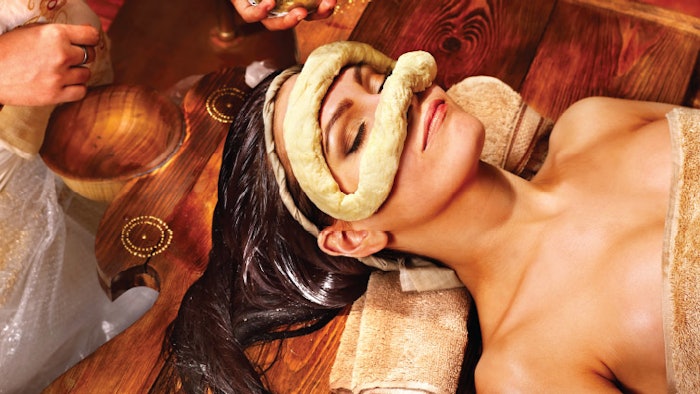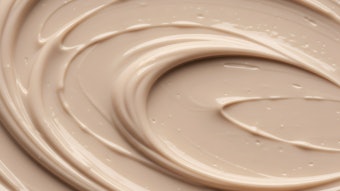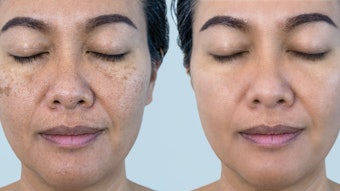
In the world of aesthetics and spa therapies, the art of facials is evolving, embracing age-old traditions from diverse cultures. Incorporating practices like gua sha, jade rolling, acupressure and face masks, rooted in Asian and Indian heritage, alongside botanical ingredients from Indigenous cultures, has become a beacon of holistic beauty and skin care. However, it’s important to be mindful of potential cultural appropriation, especially in the age of TikTok.
Celebrating the Richness of Traditions
The allure of traditional practices goes beyond their effectiveness; it delves into the cultural and philosophical foundations that have shaped these practices for centuries. Gua sha, jade rolling and acupressure, deeply rooted in ancient Chinese medicine, are not merely skin care techniques, but they embody a profound understanding of the body and its energies.
In Chinese culture, gua sha is a technique that traces its origins back thousands of years. The term ‘gua’ means to scrape or rub, and ‘sha’ refers to the redness or petechiae that appear on the skin as a result of the therapy. Beyond skin care, ua sha is a therapeutic practice believed to promote the flow of vital energy or ‘qi’ and blood within the body. It is a tool for detoxification and healing, embracing the principles of Traditional Chinese Medicine (TCM).
Jade rolling, another ancient Chinese skin care practice, involves rolling a smooth jade stone across the face and neck. Jade is considered a symbol of beauty, grace and longevity in Chinese culture. Beyond its cooling and soothing effect on the skin, the jade roller is believed to balance one’s ‘qi’ and calm the mind, aligning with the TCM belief that the skin reflects the body’s overall health.
Acupressure, deeply rooted in TCM, is the practice of applying pressure to specific points on the body. These points are believed to be linked to the body’s energy pathways, promoting wellness and balancing the body’s vital forces. Facial acupressure not only aids in relaxation and stress reduction but also encourages better circulation and rejuvenation of the skin.
Beyond their physical benefits, these practices hold deep cultural and philosophical significance in Chinese traditions. They embody the principles of balance, harmony and the interconnectedness of the mind, body and spirit. These ancient practices reflect a holistic approach to wellness that aims to cultivate not only a beautiful complexion but also a harmonious and vitalized life.
Did you know that the face mask was actually invented in South Asia thousands of years ago? The Ayurvedic Haldi Ubtan face mask, originating over 5000 years ago in India, combines turmeric and other botanicals to promote a radiant and youthful glow. In India, tending to one’s hair and skin was not only tied to religious rituals and wedding ceremonies, but it was also deeply ingrained in daily self-care routines, viewed as essential for promoting both health and longevity.
Botanical ingredients like rhodiola, Pinotage grape, moringa and Kalahari melon from Indigenous cultures offer an abundance of benefits. These gifts from nature have been used for generations, showcasing the wisdom and knowledge passed down through centuries. The beauty of integrating these time-honored ingredients and rituals is twofold: they are effective, and they pave the way for exposure, understanding, study and appreciation of diverse cultures. Estheticians often report that clients are more curious about Indigenous herbs when they are incorporated into skin care ingredients.
Related: 3 Indigenous Spa Experiences That Celebrate Local Culture
Appreciation vs. Appropriation
Appreciation and appropriation walk a fine line. Genuine appreciation involves understanding, respecting and acknowledging the cultural context of the practices and ingredients we incorporate. It’s about honoring the traditions, their significance, and the communities that cultivated them.
However, the rise of influencers has brought about instances of cultural appropriation, where elements of various cultures are adopted (and go viral) without understanding, respect or proper acknowledgment. In the ever-evolving realm of online beauty discussions, gua sha, has seen multiple surges of popularity. Notably, it had a resurgence in 2021, propelled by celebrities like Elizabeth Olsen and a wave of tutorials by content creators on optimizing gua sha techniques. On platforms like TikTok, influencers dived into this trend, some lauding its benefits, while others skeptically dismissing it as mere product marketing. Unfortunately, amidst the trend frenzy, the deep-rooted origins of gua sha often received scant acknowledgment.
4 Tips for Culturally Respectful Incorporation
Incorporating diverse cultural traditions and ingredients into facials is an ode to the beauty of global diversity. As we navigate this path, let’s tread with respect, understanding and a genuine desire to honor the wisdom that each culture offers. Here are some tips to ensure respectful incorporation:
1. Educate Yourself
Dive into the histories, philosophies and significance of the cultural practices and ingredients you want to integrate. Understanding the roots is key to respectful implementation.
2. Consult With Experts
Collaborate with cultural experts or practitioners from the respective cultures to ensure accurate knowledge and appropriate usage of techniques and ingredients.
3. Transparent Communication
Clearly communicate the cultural origins of the practices and ingredients to your clients, promoting transparency and appreciation. You can do this best in your marketing materials, on your website, and in your treatment descriptions on your menu.
4. Mutual Benefit
Establish partnerships with organizations or communities associated with the traditions you incorporate, contributing to their well-being and supporting their causes.
Nourishing the Skin with Wisdom
In the realm of modern skin care, many brands have embraced the teachings of Eastern and Indigenous medicine. For example, the use of rhodiola, known for its adaptogenic properties, has been integrated into skin care products. Brands honor the wisdom of these cultures by responsibly sourcing ingredients, respecting their cultural significance and often supporting the communities from which they derive.
Similarly, the utilization of Pinotage grape, moringa and Kalahari melon in skin care draws from the rich African traditions, showcasing a blend of ancient knowledge and modern innovation in the beauty industry.
A Call to Holistic Harmony
By embracing traditions with sensitivity, we can bridge gaps, break stereotypes, and cultivate an environment where cultural appreciation is genuine, respectful, and enriching for everyone involved. Let’s strive for a spa industry that pays homage to cultures, appreciates their contributions, and ensures that the benefits flow back to the communities that have nurtured these timeless traditions. Together, we can create a more inclusive and enriching spa experience for all.
Irene Macabante brings 25+ years of branding, marketing and tech expertise to the spa world. As a passionate spa-goer and wellness advocate. She delivers workshops, training and articles that merge leading insights on diversity, equity, inclusion and trauma-awareness with hands-on anti-bias practices. As CEO of the Citrine Consulting Collective, Irene continues shaping spas into sanctuaries of unity and wellness and infuses every venture with a unique blend of creativity and purpose.
*Disclaimer: This article aims to provide guidance on respectfully incorporating cultural traditions into facials and is not an exhaustive guide. Continuous education and engagement with experts are encouraged for a comprehensive understanding.











